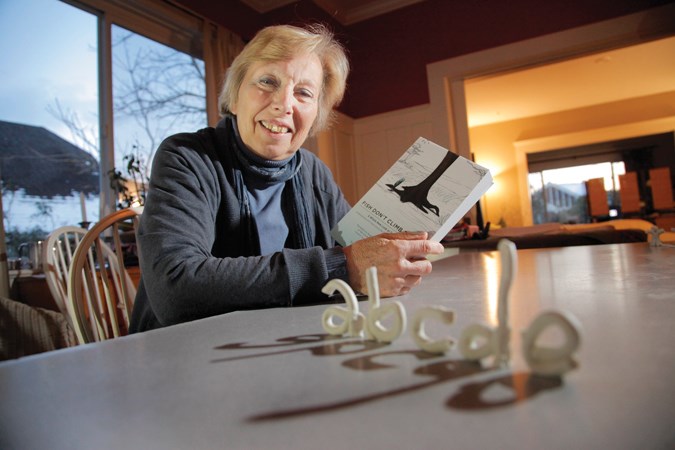"Everybody is a genius," said Albert Einstein. "But if you judge a fish by its ability to climb a tree, it will live its whole life believing that it is stupid."
The idea of measuring everyone's intelligence unilaterally and building educational programming around one way of learning is what North Vancouver's Sue Hall addresses in her new book, Fish Don't Climb Trees. It looks at the challenges and triumphs of students with dyslexia and how the education system can better serve them.
For the past 15 years, Hall has been a Davis Dyslexia Correction facilitator working with children and adults. She and her son also have the condition.
But for most of her life, Hall did not know she had dyslexia, which affects about 15 to 20 per cent of Canadians.
For the most part, when she was younger, Hall was a good student.
"I answered all the questions. I could spell. I could read. I used to get to the bottom of the page and think, 'What on Earth was that about?' The comprehension, the understanding, was not always the easy part," she said. "But I just used to re-read it over and over and over until I got it."
Hall admits that math was her downfall, but it was her studying style that she would later realize was unique. She would often take photographs of her textbook pages to help her match up the spelling of the words with how she saw the words in her head and how she was writing them down.
"Now I look back at it, I can see the funny things that were happening because of my dyslexia," she said. "But it wasn't until my son was born and I sent him to school at five that I realized he had this difficulty reading and spelling."
Hall's book is broken up into five parts: her son's journey; her own experience with dyslexia; stories about her students' "aha" moments; an outline of the challenges within the education system; and what the system can do for students with dyslexia.
"Most of all, in my opinion, it's about understanding," she said. "If people understand how other people think and learn, it's not difficult to teach them, you know?" Hall has also worked with teachers to give them an idea of simple techniques that would go a long way in a classroom with dyslexic students.
"It's this lack of understanding," she added. "We're still working on these old beliefs that there's something wrong with our brains.
"It's just very, very out of date and time for change."
But the book isn't just for teachers; it's also for parents of dyslexic children, according to Hall.
"It's very important that parents are given this information so that they can totally understand that it's actually the system that has the challenge, not the children," she said. "That it's the system that has to change, not the children."
Hall said dyslexia is a gift that alters a person's perception, which can make people brilliant athletes or help them excel as carpenters, electricians and in many other professions requiring someone to evaluate all the angles.
"Once they understand that they can believe in their children and that's the most important part, I think, that parents absolutely believe that their kids are doing as much as they can possibly do and it's just this crazy system," she added.
Overall, Hall said she hopes people will read the book and realize dyslexia isn't a learning disability, per se, but a different way of learning and thinking that needs equal opportunity in the education system.
"I just hope people will buy the book, they'll gather an understanding, they'll realize the kids are fine, the system needs to change and then they'll re-gift the book," she said. "I just want it to spread. I want this knowledge to get out there."
Hall will present her new book on Dec. 10 at the Lynn Valley public library from 7 to 8 p.m. For more information, visit fishdontclimbtrees.com.



